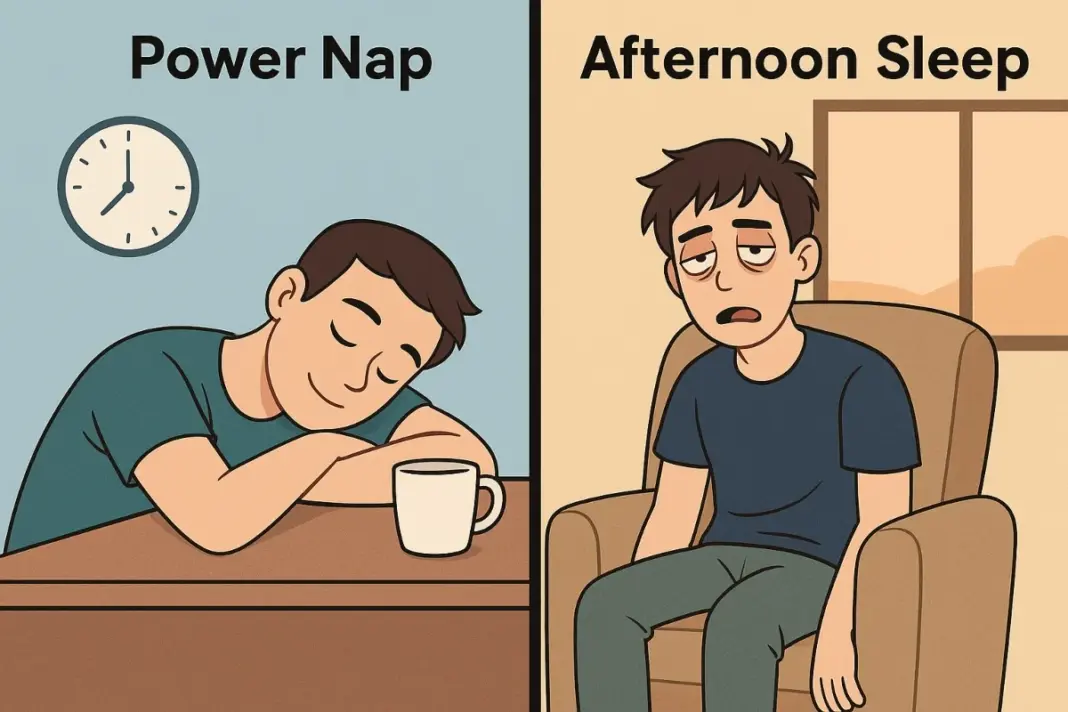Every afternoon, a secret battle unfolds: power naps vs afternoon sleeping. One promises a quick energy zap, the other lures you into dreamland with groggy consequences. But beware, choose wrong, and you could turn your day into a sleepy zombie marathon.
The real question is which midday habit truly saves your day without sneaking in sleep-deprivation health risks. Or the afternoon sleep disadvantages that quietly haunt many already tired souls.
Power Naps Vs Afternoon Sleeping: Which Midday Habit Truly Helps?
Power naps last typically 20 to 30 minutes. They recharge mental clarity, boost mood, and sharpen memory without invading deep sleep cycles. Afternoon sleeping, however, tends to stretch longer and can lead to grogginess afterward. While both reduce fatigue, power naps more safely avoid interfering with nighttime sleep.
Choosing between them depends on timing and length, balancing refreshment against potential sluggishness. These distinctions underline the ongoing debate over midday rest habits and their true benefits or downsides.
DON'T MISS
Why Do Short Power Naps Boost Energy, Memory, And Mood Naturally?
Short power naps tap into lighter sleep stages, avoiding the deep sleep that can cause inertia. This brief rest helps clear the brain, boosting alertness and lifting moods temporarily. However, power naps cannot substitute for full night sleep needs.
Chronic reliance on napping without sufficient night sleep may lead to sleep-deprivation health risks such as obesity, high blood pressure, and elevated cholesterol. It can also increase glucose issues, diabetes, cardiovascular disease, and cognitive decline. Thus, power naps act as a natural, short-term energy and mood helper but are not a cure for overall sleep deficits.
Afternoon Sleep Offers Quick Rest But Risks Grogginess Later
Afternoon sleep provides a faster way to rest but carries drawbacks. Taking longer naps beyond 30 minutes risks “sleep inertia,” leaving one sluggish. Experts recommend naps between 20 and 30 minutes, timed in early afternoon, aligning with natural energy dips, to enhance alertness and mood without disrupting night sleep.
Regularly napping late or for extended periods can reduce sleep drive at night, causing further sleep deprivation. Despite benefits like better memory and reduced stress, afternoon sleep requires careful timing and length to avoid becoming a disadvantage.
In comparing power naps vs afternoon sleeping, short naps provide immediate cognitive boosts with fewer disadvantages. Longer afternoon naps deliver rest but can induce grogginess and worsen nighttime rest, posing health risks when overly relied upon. Embracing brief early naps supports daytime performance and mood while lowering sleep deprivation health risks.
Disclaimer: This content, including advice, provides general information only. It is not a substitute for a qualified medical opinion in any way. The methods and claims mentioned in this article should be considered as suggestions only; DNP India neither confirms nor denies them. Always consult a doctor before following any such suggestions/treatments/medications/diets.



